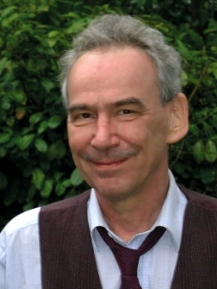I got to know Gerd Bauman when he was the President of EASA. He joined the EASA Executive Committee in 1997 and I in 1999 as secretary. We met at different intervals and generally talked about the ongoing business of the executive. It soon turned out that we could converse about many other things; this was one of his great assets. He was wonderfully versatile. Germany, music – he loved classic, I baroque – and of course we agreed that 1953 was a really special year of the 20th century. I remember vividly the reception hosted by the outgoing chair Marilyn Strathern. A grand and exquisite dinner hosted by Strathern, at the time also Mistress of Girtin College, she handed over the presidency to Gerd who was very modest about it and – I think – taken aback by the honour. We were sipping sherry after the dinner but he could not wait to start a cigarette. I noticed but perhaps it was only my imagination that his hand was shaking a bit. Maybe it was from the excitement of the moment or perhaps only his bodily reaction to his smoking habit.
We became friends and I soon learned that this was not difficult with him, he could easily get close to peoples. This too was part of his cordial personality traits. He was witty and very open about his ideas. I loved his sense of firmness and how he could take no for an answer when he knew that something could be rectified and amended. Later, as we were sifting through the incoming proposals and abstracts for the upcoming EASA conference, Gerd established a very democratic idea: no proposal should be rejected. He was extremely adamant that everyone should be given a possibility to come to our meeting. When somebody complained that some of the proposals are a bit confusing and way too long he dismissed it as nonsense. Me, Hastings Donnan and Eduardo Archetti (sadly he is the second person now who passed away from that great team), were given the task of shortening these abstracts. Gerd gave the instruction: ‘well, just go ahead and do it. Hurry up’. And like obedient children, we listened to his words.
At our meeting in Cambridge, he gave me a copy of his recently published The multicultural riddle. In it he wrote: “To Laszlo with all good wishes”. He knew that I and the new executive committee badly needed his encouragement. Our association was going through a very difficult period and solving all the bureaucratic hurdles took quite a few years (actually only settled when Jon Mitchell took the chair from Gerd). What he wrote on the last page in his above mentioned book, that “there are plenty of things we can do”, unfortunately is no more. The chapter is closed forever. I will cherish the memory of him.
László Kürti, University of Miskolc, Hungary
References
Baumann, G. (1999). The multicultural riddle: Rethinking national, ethnic, and religious identities. New York: Routledge. ISBN-10: 0415922135 | ISBN-13: 978-0415922135 0
